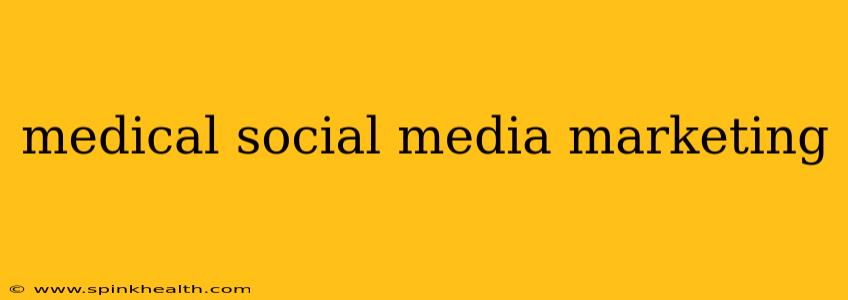The world of healthcare is changing. No longer is it enough to simply hang a shingle and wait for patients. In today's digital age, a strong online presence is crucial, and for medical professionals, that means mastering medical social media marketing. This isn't just about boosting your ego; it's about connecting with potential patients, building trust, and ultimately, improving healthcare outcomes. Let me tell you a story…
Dr. Anya Sharma, a dedicated cardiologist, found herself facing a familiar challenge. Her practice, while successful, wasn't growing at the pace she desired. Patient referrals were steady, but she knew there was a larger audience she could reach. Her solution? A strategic dive into the world of medical social media marketing.
Anya's journey wasn't without its bumps. Initially, she struggled to understand the nuances of different platforms, the importance of consistent posting, and the ever-changing algorithms. But through research, learning, and a dash of trial and error, she discovered the power of thoughtful content creation.
What are the best social media platforms for doctors?
This was Anya's first major hurdle. She considered Facebook, Instagram, and even TikTok, but ultimately chose a multi-platform approach. Facebook allowed her to connect with local communities and share articles about heart health. Instagram, with its visual focus, was perfect for sharing informative infographics and videos on healthy lifestyles. She even experimented with short, engaging videos on TikTok, showcasing the human side of her practice.
How can doctors use social media to build trust with patients?
Building trust was paramount for Anya. She understood that patients need to feel comfortable and confident in their healthcare providers. She achieved this by:
- Sharing her expertise: Anya regularly posted articles and videos on topics related to cardiology, showcasing her knowledge and dedication to her field.
- Highlighting patient success stories (with permission, of course): These testimonials helped build trust and showed potential patients the positive impact of her care.
- Being transparent and authentic: Anya shared personal stories (while maintaining patient privacy) and showed her genuine passion for her work. This human touch made a significant difference.
What are some examples of successful medical social media marketing campaigns?
Anya wasn't alone in her journey. She learned from other successful medical professionals. One cardiologist she followed utilized a monthly theme on Instagram, focusing on a specific aspect of heart health. Another cleverly used Facebook groups to engage with patients and answer their questions directly. These examples showed her the power of creativity and consistent effort.
How do I stay HIPAA compliant when using social media?
This was a crucial aspect Anya had to learn. HIPAA compliance is non-negotiable. She meticulously followed these guidelines:
- Never share Protected Health Information (PHI): This includes patient names, medical records, dates of service, and any other identifying details.
- Review her practice's social media policy regularly: This ensures adherence to all relevant regulations and best practices.
- Use strong privacy settings: She carefully managed her account settings to control who could see her posts and interact with her content.
What are some common mistakes to avoid in medical social media marketing?
Anya learned from her own early mistakes and from observing others:
- Ignoring engagement: Simply posting content isn't enough; actively engaging with comments and messages is crucial.
- Inconsistent posting: A sporadic social media presence is less effective than a consistent, well-planned strategy.
- Ignoring analytics: Tracking key metrics like engagement, reach, and website traffic is essential for optimizing the strategy.
The Result?
Anya's consistent dedication to medical social media marketing paid off. Her practice grew, attracting new patients who felt a connection with her and trusted her expertise. Her online presence transformed her from a local cardiologist into a recognized voice in her community and beyond.
The journey of medical social media marketing is a marathon, not a sprint. It requires dedication, creativity, and a genuine commitment to connecting with your audience. But as Anya's story demonstrates, the rewards are well worth the effort. It's not just about attracting patients; it's about building a thriving healthcare community.

